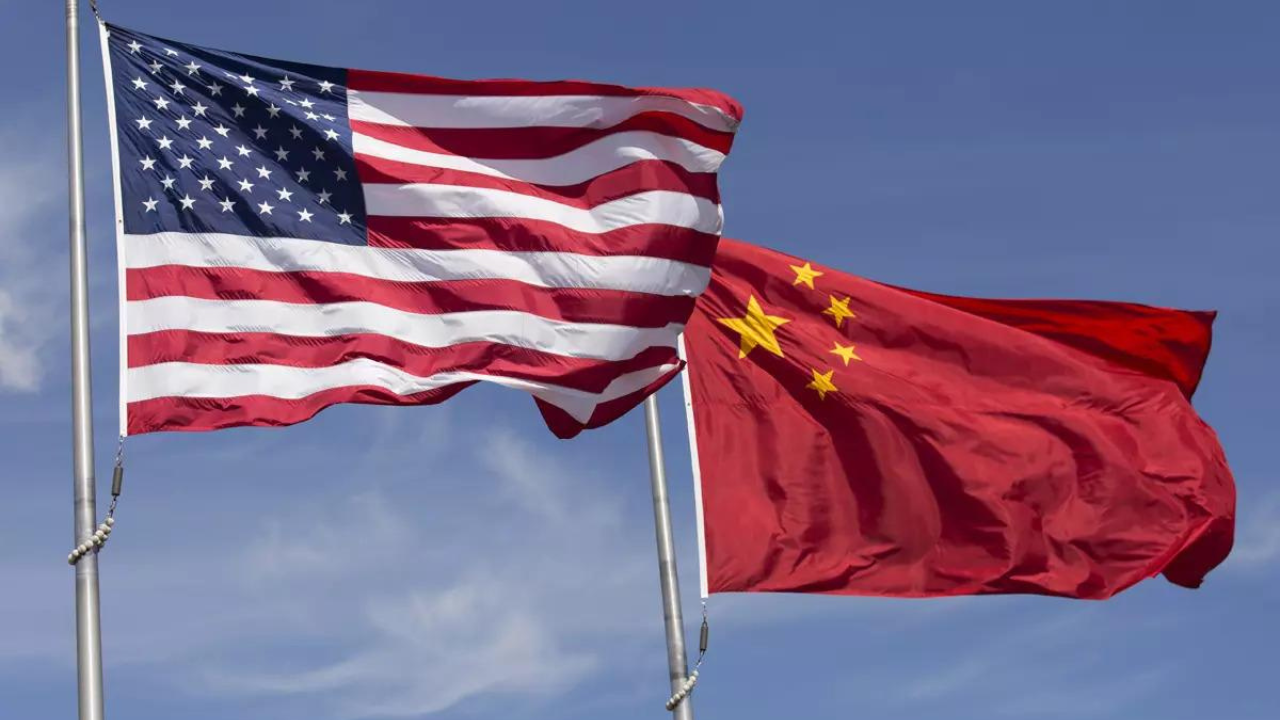NEW DELHI: The United states and China on Saturday have agreed to conduct “intensive exchanges on balanced growth”, the US Treasury department said in a statement, following two days of discussions between Treasury Secretary Janet Yellen and her Chinese counterpart He Lifeng in Guangzhou.
“These exchanges will facilitate a discussion around macroeconomic imbalances, including their connection to overcapacity, and I intend to use this opportunity to advocate for a level playing field for American workers and firms,” said Yellen in a separate statement.
In her statement, Yellen said she and her counterparts “agreed that the US and China will hold intensive exchanges on balanced growth in the domestic and global economies. These exchanges will facilitate a discussion around macroeconomic imbalances, including their connection to overcapacity, and I intend to use this opportunity to advocate for a level playing field for American workers and firms.”
Yellen said “these exchanges on balanced growth in the domestic and global economies are key to allowing us to deepen our understanding of China’s policies and continue to express our concerns, as I have done in my meetings with Vice Premier He.
Earlier state media coverage of her trip had brushed off US concerns regarding overcapacity as a rationale for tariffs. In a report on Friday night, the official Xinhua news agency acknowledged Yellen’s visit as a positive indication of ongoing communication between the world’s two largest economies. However, it also cautioned against framing discussions on Chinese overcapacity in the clean energy sector as a pretext for implementing further protectionist measures to safeguard US companies.
During a refueling stop in Alaska en route to China, Yellen informed reporters that the US is considering tariffs as a potential response to China’s heavily subsidized manufacturing of green energy products.
Chinese government subsidies have spurred investments in solar panels and electric vehicles, leading to excess production capacity. While this has driven down costs and benefited consumers, Western governments are concerned about the potential flood of low-priced exports impacting domestic jobs.
Efforts have been made in the US through legislation and executive orders to reduce reliance on certain Chinese technologies and bolster domestic manufacturing capabilities, seen as crucial for national security by many in the White House and Congress.
In 2022, the $280 billion CHIPS and Science Act was passed to bolster the semiconductor industry and scientific research, aiming to generate more high-tech jobs in the United States and enhance competitiveness against China. Moreover, last August, President Joe Biden issued an executive order to restrict and oversee high-tech investments from the US directed towards China. Yellen is scheduled to proceed to Beijing on Saturday afternoon for further discussions with senior officials, economists, and the central bank governor over the weekend.
(With input from agencies)
“These exchanges will facilitate a discussion around macroeconomic imbalances, including their connection to overcapacity, and I intend to use this opportunity to advocate for a level playing field for American workers and firms,” said Yellen in a separate statement.
In her statement, Yellen said she and her counterparts “agreed that the US and China will hold intensive exchanges on balanced growth in the domestic and global economies. These exchanges will facilitate a discussion around macroeconomic imbalances, including their connection to overcapacity, and I intend to use this opportunity to advocate for a level playing field for American workers and firms.”
Yellen said “these exchanges on balanced growth in the domestic and global economies are key to allowing us to deepen our understanding of China’s policies and continue to express our concerns, as I have done in my meetings with Vice Premier He.
Earlier state media coverage of her trip had brushed off US concerns regarding overcapacity as a rationale for tariffs. In a report on Friday night, the official Xinhua news agency acknowledged Yellen’s visit as a positive indication of ongoing communication between the world’s two largest economies. However, it also cautioned against framing discussions on Chinese overcapacity in the clean energy sector as a pretext for implementing further protectionist measures to safeguard US companies.
During a refueling stop in Alaska en route to China, Yellen informed reporters that the US is considering tariffs as a potential response to China’s heavily subsidized manufacturing of green energy products.
Chinese government subsidies have spurred investments in solar panels and electric vehicles, leading to excess production capacity. While this has driven down costs and benefited consumers, Western governments are concerned about the potential flood of low-priced exports impacting domestic jobs.
Efforts have been made in the US through legislation and executive orders to reduce reliance on certain Chinese technologies and bolster domestic manufacturing capabilities, seen as crucial for national security by many in the White House and Congress.
In 2022, the $280 billion CHIPS and Science Act was passed to bolster the semiconductor industry and scientific research, aiming to generate more high-tech jobs in the United States and enhance competitiveness against China. Moreover, last August, President Joe Biden issued an executive order to restrict and oversee high-tech investments from the US directed towards China. Yellen is scheduled to proceed to Beijing on Saturday afternoon for further discussions with senior officials, economists, and the central bank governor over the weekend.
(With input from agencies)
